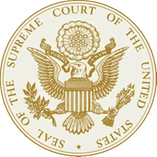 Describing it as a case that "will have big implications for publishers, retailers, and consumers," paidContent reported that the Supreme Court has agreed to hear an appeal by entrepreneur Supap Kirtsaeng, whose family in Thailand sent him textbooks to resell in the U.S. He reportedly sold $37,000 worth of John Wiley titles and the publisher sued him for copyright infringement in eight textbooks, winning $600,000 in damages.
Describing it as a case that "will have big implications for publishers, retailers, and consumers," paidContent reported that the Supreme Court has agreed to hear an appeal by entrepreneur Supap Kirtsaeng, whose family in Thailand sent him textbooks to resell in the U.S. He reportedly sold $37,000 worth of John Wiley titles and the publisher sued him for copyright infringement in eight textbooks, winning $600,000 in damages.
Kirtsaeng argued that he is protected by the "first sale doctrine--a rule that lets copyright owners exercise their right only the first time an individual book or record is sold. The first sale rule is what allows used book and record stores to do business," paidContent noted, adding that while the doctrine has long been accepted for goods made here, overseas goods raise the question of whether the rule should apply when the first sale took place in another country.
The Wiley case "will shape brand owners' ability to maintain pricing power in the face of so-called 'grey market' goods from overseas," paidContent wrote. The Supreme Court is expected to hear the case this fall.

